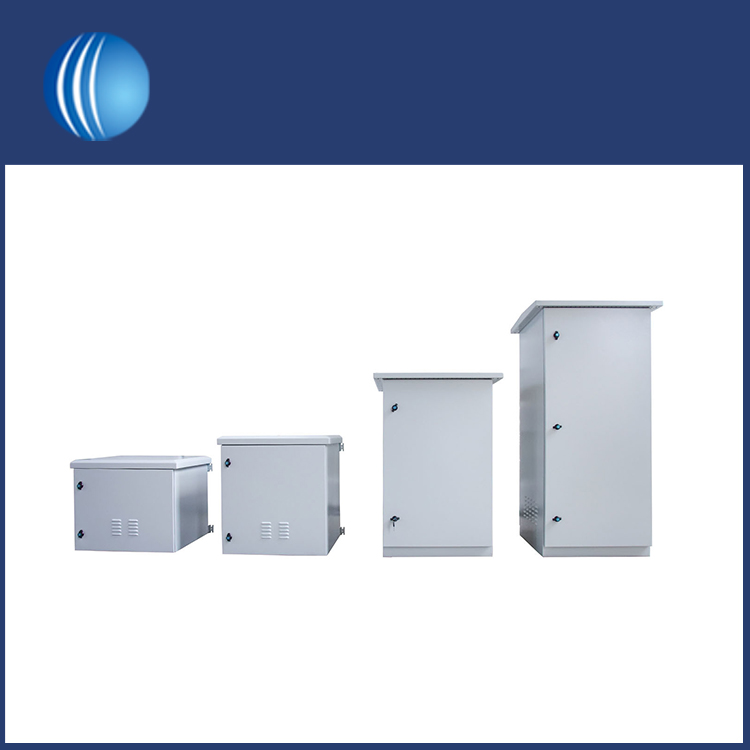Why Are Industrial Enclosures Essential for Equipment Protection?
2024-12-30
Industrial enclosures are an integral part of many industries, safeguarding sensitive equipment from various environmental factors and ensuring smooth operations. Whether in manufacturing, power distribution, or automation, these enclosures play a crucial role in preserving the functionality and longevity of electrical and mechanical systems. But why exactly are industrial enclosures so essential, and how do they contribute to the protection of vital machinery?
In this blog, we will dive into the importance of industrial enclosures, the different types available, and how they enhance both safety and efficiency in industrial settings.
What Is an Industrial Enclosure?
An industrial enclosure is a protective casing designed to house electrical components, machinery, and other sensitive equipment. These enclosures are engineered to shield the internal components from external elements like dust, moisture, extreme temperatures, and physical damage. In many cases, industrial enclosures are also built to prevent electrical shocks, providing a safety barrier between operators and potentially hazardous equipment.
These enclosures come in various materials, sizes, and designs, depending on the specific needs of the equipment they protect. Common materials include stainless steel, aluminum, fiberglass, and plastic, each offering different levels of durability, resistance to corrosion, and ease of maintenance.
Why Are Industrial Enclosures So Important?
1. Protection Against Harsh Environmental Conditions
Industrial settings can expose equipment to harsh environments, including moisture, chemicals, and fluctuating temperatures. Industrial enclosures provide a physical barrier that prevents these elements from damaging sensitive components. Whether in outdoor applications, high-humidity areas, or chemical plants, the right enclosure can protect valuable machinery and electrical systems from environmental factors that would otherwise cause malfunctions or failures.
2. Enhanced Safety for Workers
One of the key roles of industrial enclosures is to enhance safety in the workplace. These enclosures often prevent direct contact with dangerous components such as high-voltage wiring, moving parts, or machinery under pressure. By containing these risks within a secure casing, enclosures reduce the chance of accidents, electrical shocks, or injuries to workers. In many industries, enclosures are essential for complying with safety regulations and standards.
3. Prevention of Equipment Downtime
Equipment failures or breakdowns can result in costly downtime, reduced productivity, and delayed operations. Industrial enclosures help prevent these issues by protecting critical components from damage caused by dust, dirt, moisture, or extreme temperatures. For example, electrical panels housed in enclosures are less likely to suffer from short circuits or malfunctions due to exposure to external factors. This level of protection can prolong the lifespan of machinery, reducing maintenance costs and minimizing the risk of expensive repairs.
4. Customization and Flexibility
Industrial enclosures can be customized to meet the specific requirements of various applications. Whether you need enclosures with ventilation systems, temperature controls, or locking mechanisms, manufacturers offer a wide range of options. This level of customization allows businesses to select enclosures that are tailored to their operational needs, providing optimal protection for different types of equipment.
5. Compliance with Industry Standards
Many industries are subject to strict regulatory standards when it comes to safety and equipment protection. Industrial enclosures are often designed to meet these standards, ensuring that companies comply with local and international regulations. Enclosures can be rated for specific conditions, such as IP (Ingress Protection) ratings, which indicate the level of protection against dust and water, or NEMA (National Electrical Manufacturers Association) ratings, which define the types of environments the enclosures are suited for.
Types of Industrial Enclosures
1. Electrical Enclosures
These are used to house electrical components like circuit breakers, switches, transformers, and control panels. Electrical enclosures are designed to protect against electrical shocks, fires, and short circuits, while also keeping out dust and moisture.
2. Junction Boxes
Junction boxes are smaller enclosures used to connect electrical wiring and protect it from environmental factors. They are commonly used in both indoor and outdoor installations to house connections and keep wires secure and safe from damage.
3. Control Enclosures
These enclosures protect control systems used in industrial automation and machinery. Control enclosures typically house programmable logic controllers (PLCs), remote terminal units (RTUs), and other control components that need protection from external elements.
4. Outdoor Enclosures
Outdoor enclosures are designed to withstand the elements and are often used in installations that are exposed to rain, wind, and temperature fluctuations. These enclosures are typically built with robust materials like stainless steel or fiberglass to ensure long-lasting protection.
How Do Industrial Enclosures Contribute to Efficiency?
Industrial enclosures don’t just provide protection – they also contribute to operational efficiency. By maintaining an optimal environment for equipment, these enclosures ensure that machines run smoothly and reliably. This can lead to fewer interruptions, less downtime, and more consistent productivity. In industries where machinery failure can have a significant impact on output, the use of quality enclosures becomes even more crucial.
Additionally, enclosures that are well-designed for ventilation, temperature control, and easy access to components can enhance the ease of maintenance and help keep machinery running at peak performance. In this way, industrial enclosures not only safeguard equipment but also streamline operations and reduce operational costs.
Conclusion
Industrial enclosures are much more than just protective coverings – they are essential components in maintaining the safety, efficiency, and longevity of industrial equipment. Whether it's protecting electrical systems from environmental damage, reducing the risk of accidents, or ensuring compliance with industry regulations, these enclosures play a pivotal role in modern industry.
With the right industrial enclosure, businesses can safeguard their operations, enhance worker safety, and avoid costly repairs or downtime. As industries continue to evolve, the importance of enclosures will only grow, making them a vital investment for companies looking to maintain a competitive edge and ensure smooth, uninterrupted operations.



